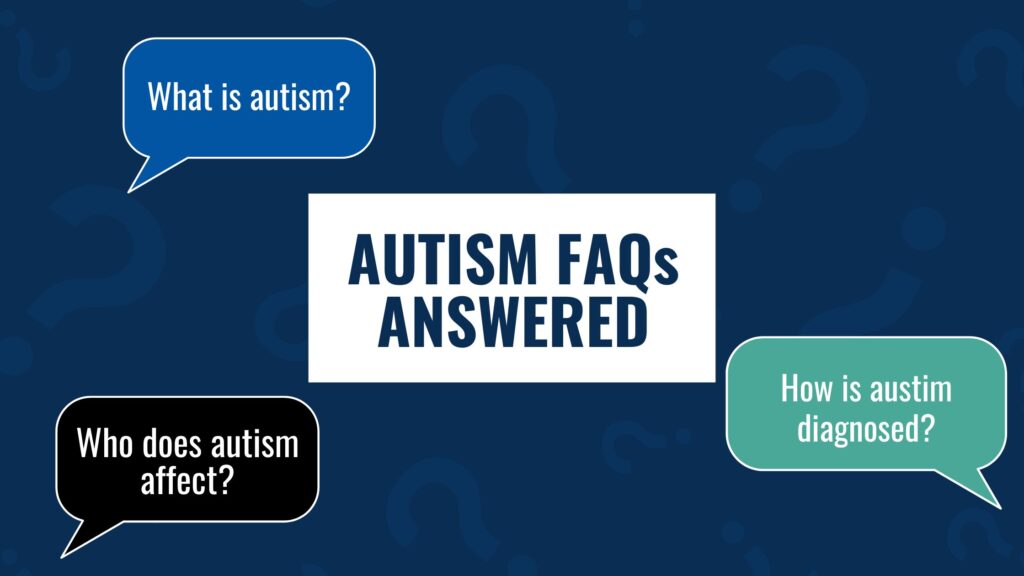Autism: Demystifying the Spectrum with FAQs
Autism spectrum disorder (ASD) is a complex neurodevelopmental condition that affects information processing, social interaction, and behavior. Autism is not an intellectual disability. While it can present in a wide range of ways, there’s often a lot of confusion and unanswered questions surrounding autism.
CSG Program Director, Mary Beth Greenhalgh is here to help those looking to better understand ASD and answer some of the most common questions she and her team are asked. Whether you’re a parent, caregiver, educator, or simply curious to learn more, this post aims to shed light on autism and empower you with valuable information.
Autism FAQs
What are the core symptoms of autism?
Signs and symptoms include concerns related to social interaction, communication or relationships and repetitive or stereotyped behaviors that are not typical for the age or development stage of the child/person and that interfere with their quality of life and day to day functioning.
Autism can appear as ADHD, anxiety, depression and other types of mental health disorders or even physical disability (i.e. hearing loss). It is important to obtain a comprehensive evaluation to know so that the best treatment can be accessed.
How is autism diagnosed?
There is no “test” for autism but there are criteria to be observed by a professional to make a diagnosis of autism. Some early signs can include regression in language milestones; lack of pretend play and not engaging with others.
Are there different types of autism?
Since autism is considered a spectrum disorder there are levels of severity as opposed to different types of autism. Level 3 (requires very substantial support), Level 2 (requires substantial support), and Level 1 (requires support). The new diagnostic criterion has removed previous names like Asperger’s in favor of these categories.
What resources are available for individuals with autism and their families?
There are many community and center based services for families to access. To access resources in your area, contact your county case management, an early intervention center, a developmental pediatrician, and/or your insurance carrier. The gold standard for treatment is applied behavior analysis (ABA). When looking for services, it is critical to find evidence based treatments that have been proven to work. Two good sources of information are ASERT (Autism Services, Education, Resources and Training) https://paautism.org/ and ASAT (Association for Science in Autism Treatment) https://asatonline.org/.
Who can be affected by autism?
1 in 36 individuals have autism, or ASD, and it can affect people of all genders, races and ethnicities. Because autism exists on a spectrum, how it manifests varies from person to person. While there’s no single cause identified, research does show a few genetic and environmental factors that may be involved. For example:
- ASD is more common in boys than girls
- Having a sibling with ASD increases the likelihood of a diagnosis
- Certain genetic conditions, such as Fragile X syndrome, Down syndrome and Rett syndrome, can increase the chance of an ASD diagnosis
Additionally, it’s important to note that there is no scientific evidence that vaccines cause autism.
Start with CSG
Early diagnosis and treatment are crucial to making progress. If you have more questions about ASD or want to learn more about our autism services, get in touch! We’d love to help you make sure you get the resources and support you need. Email or call us at 1.877.907.7970.
We can all work together to build a better understanding of autism and the incredible individuals who navigate this spectrum.

